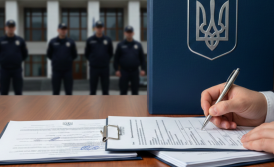Copyrights infringements on the Internet: Ukrainian cases and court rulings

Owner of a website that hosts literary works, movies, music etc. can secure his calm future without any disputes with copyright holders only by using evidence of the legality of intellectual property objects placement or at least evidence that proves exhaustion of rights to work placement by copyright holder (more details in our comment). Despite the fact that litigation in cases of copyright protection on the Internet is quite extensive, it is still being formed and in some moments it even transforms since the Internet itself and everything connected with it is still on the stage of rapid development.
General analysis of judgments in this category of cases suggests that courts cannot find a comprehensive approach to resolve these disputes. Usually the most obvious answer to the main question serves as the basis of the decision which leads to simplification of justice. At the same time judges very rarely tend to consider a dispute comprehensively, with the analysis of how evidence is presented and taking into consideration special features of "electronic" violations: location of a server, place of domain name registration, nuances of site owners relationships with users of the site, etc.
Therefore, not all decisions can be called as such that form litigation practice but some trends can be traced. In particular a number of rulings can be outlined depending on the type of liability which is applied to a defendant. Examples of people who violated copyrights on the Internet bearing civil liability:
- Decision of Odessa region Court of Appeal dated 21.09.2012, case number 22Ц/1590/6954/1 which upheld a decision of a local court to prohibit a defendant to place an article copyrighted by claimant on his website. In this ruling the defendant was charged 1000 UAH in moral damages and compensation for breach of proprietary rights in the amount of 9850 UAH. The essence of copyright infringement was in placement of an article authorship of which belonged to one of the claimants on defendant’s website without the consent of the author and without the consent of the limited liability company which received exclusive property rights to this article (second claimant). The evidence which led for the claim to be satisfied consisted of a protocol of website being inspected on the Internet notarized by a Russian notary and data of Regional Network Informational Center on who is the administrator of the site which illegally hosted the article;
- Decision № 6 of High Specialized Court of Ukraine For Civil and Criminal Cases dated 05.12.2011, 22495SV12 in the case of compensation recovery for copyright infringement and moral damages from a person who placed a thesis of a claimant on his website and was selling it. Although the decision did not end the dispute but it canceled the decision of a Court of Appeal which did not satisfy a lawsuit referring to the claim being without appropriate grounds and the case was sent for a new hearing;
- The decision № 20/49 of the Kiev Commercial Court dated 02.11.2010 upheld by the Kiev Commercial Court of Appeal and the Resolution of the High Commercial Court of Ukraine. It was about a violation of claimant’s copyright by a defendant through paid content distribution (in particular through its advertising on the Internet and in a magazine) the rights to which belonged to claimant after expiry of license agreement. Evidence of violations included protocol of inspection and examination of evidence on the Internet prepared by the court of first instance and evidence that proved that domain name belonged to the claimant which was obtained by the court from http://imena.com website. As the result the claim was satisfied with 126,000 UAH in compensation for the violation of exclusive property rights and 5 000 UAH of moral damages.
Also there are cases of criminal and administrative liability. However they are less frequent and are usually related to businessmen who illegally downloaded copyright objects from the Internet and then sold them or used in their business. One of latest examples of criminal prosecution for such copyright infringement is:
- verdict of Shevchenko district court of Chernivtsi № 1-546/12 dated 15.11.2012 which sentenced a seller of computer hardware to 6 months of corrective labor who downloaded unlicensed software from the Internet - Adobe Photoshop, Graphisoft and Microsoft Office 2010 and burned them on laser disks which were later sold (the investigation proved two cases of the sale). Also this verdict satisfied civil claim of "Microsoft" Corporation in the amount of 33 060 UAH. Counterfeit discs (5 pieces) and a desktop that was used to burn the CDs were confiscated and destroyed.
- verdict № 1-144/11/221of Netishyn city court of Khmelnitska region dated 08.11.2012 which charged a sole trader who downloaded unlicensed computer programs Adobe Photoshop, Microsoft Windows XP, Microsoft Office 2007 and Microsoft Windows 7 from the Internet and installed them on one desktop and one laptop with a fine of 3400 UAH. Also this court decision satisfied a civil claim of Abode Systems in the amount of 11293 UAH.
An example of administrative liability is represented by a ruling № 3-208/1 of Kirov district court of the Autonomous Republic of Crimea dated 15.02.2011 in which a person who opened a computer club where were computers with installed video games that were downloaded from the Internet without permission for licensed use was brought to justice and faced administrative responsibility in the form of a fine. Also organizers of Internet clubs where unlicensed video games were used became defendants in decision № 3-195/2011 of Busk District Court of Lviv region dated 03.03.2011, decision № 3-148 of Kalush district court dated 13.07.2010 and others. However in all these cases copyright violators would either pay the minimal fine (170 UAH) or cases against them would be closed due to the expiration of term during which a person can face administrative liability.
Our clients







